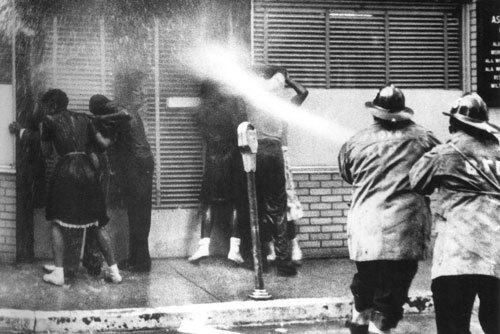
Cox’s data plan limbo dance. How low can they go?
Cox Communications has cut by half the data usage allowance of one of its fastest broadband plans targeting so-called “heavy users,” exposing unsuspecting customers to expensive overlimit fees, while claiming usage caps are now mandated by law.
Stop the Cap! reader John C. wrote to tell us he discovered his allowance for Cox’s “Ultimate” Plan, delivering 200/20Mbps, has been slashed from 2,000GB to 1,000GB, with little warning except in an obscure support FAQ.
“About 95% of Cox customers are currently on a data plan that more than adequately meets the monthly needs of their household,” Cox claimed. “However, some households, particularly those with multiple Internet users that enjoy streaming TV or movies, may want to select an Internet package with a larger data plan. That is why we offer plans for all types of users so you can choose what is best for your household.”
The plan that most customers want is a flat rate, unlimited-use plan, one that Cox has unilaterally decided to stop offering. Just as bad: targeting the most widely available premium plan for a major usage allowance cut with no explanation whatsoever. It’s bad news for John, who says after paying Cox their asking price for Ultimate service, he cannot afford to also pay overage fees on top of that (currently $10 for each 50GB allotment, charged only in the Cleveland, Oh. area for now).
Customers who contact Cox and complain about their usage caps or allowance changes are being told false fables by Cox’s customer service specialists, who claim data caps are now the law in the United States.
Here is an example of an actual support session with Cox employees, (emphasis ours, edited (…) for brevity):
 You: I also learned that you have internet data cap?
You: I also learned that you have internet data cap?
Jenna: Data limits were implemented by the FCC in 2011. By law, we have to have them. If you exceed the limit for 3 consecutive months, you will be contacted to discuss your options for upgrading.
You: FCC? can you send me details about that
[…]
Jenna: As I mentioned, there’s no fee for exceeding those limits. If you exceed the limit for 3 consecutive months, you will be contacted to discuss your options for upgrading. You can save a copy of this chat transcript for your records if you wish.
Jenna: I can also get you over to Customer Care for more information.
You: so why would you mention FCC rules then?
Jenna: Because you asked about our data limits.
Jenna: That’s why we have them.
You: Sure so can you tell me what FCC rule from 2011 you are referrind to?
Jenna: Sure, I’ll get you the link to the FCC website.
[…]
Jenna: Sure thing. Allow me a moment to get you over to Customer Care chat for further information about our Data Caps policies, and why we have them.
[…]
Christian O.: I see, well our Internet packages have a data usage limit however if you exceed that limit we won’t downgrade your speed or restrict your access to Internet or charge you more.
Christian O.: I think I found some information on the date usage and the FCC on 2011. One moment, please.
You: but it says right there that you will cahrge $10 for 50GB after I reach data cap
You: And FCC is very strict about data caps
Christian O.: Give me a moment to check something.
You: ok thanks
Christian O.: If you exceed your data plan, Cox may notify you by email to alert you. Your service will not be interrupted if you choose to stay on your existing package except in the rare cases of excessive usage. In those extremely rare situations, Cox may suspend service after attempting to resolve the issue.
Christian O.: Cox is conducting a limited data usage trial in Cleveland, Ohio. In all other markets, Cox does not currently charge additional fees if your data plan is exceeded.
You: what you are doing with data caps / usage is illegal
You: But please send me the FCC rule from 2011 that Jenna and you mention
You: “Jenna: Data limits were implemented by the FCC in 2011. By law, we have to have them.”
Christian O.: I don’t have such rule that talks about that. Do you have the rule where it says that is illegal?
Christian O.: Just asking.
[…]
Christian O.: Honestly I don’t have any idea about the rule that Jenna was speaking about. Let me go ask my supervisor. One moment, please.
[…]
Christian O.: Unfortunately we couldn’t find any information about that rule established by the FCC.
To clarify, the FCC neither has rules for or against data caps. It has remained neutral on the subject, although FCC chairman Thomas Wheeler recently advocated imposing a moratorium on data caps or usage billing for up to seven years as a condition of approving Charter Communications’ acquisitions of Time Warner Cable and Bright House Networks.
Here are Cox’s current data plans, which are effective for all residential customers. However, only customers in Cleveland will face penalties for exceeding them at this time.
| Package | Monthly Included Data | Speeds
Download / Upload |
|---|---|---|
| Starter | 200 GB | 5 Mbps / 1 Mbps |
| Essential | 250 GB | 15 Mbps / 2 Mbps |
| Preferred | 350 GB | 50 Mbps / 5 Mbps |
| Premier | 700 GB | 100 Mbps / 10 Mbps |
| Ultimate | 1000 GB | 200 Mbps / 20 Mbps |
| Gigablast (Where Available) | 2000 GB | 1 Gbps / 1 Gbps |


 Subscribe
Subscribe

 Jackson mentioned his views have the support of certain other civil rights organization including the National Urban League and the League of United Latin American Citizens (LULAC), two groups Stop the Cap! has written about extensively regarding their
Jackson mentioned his views have the support of certain other civil rights organization including the National Urban League and the League of United Latin American Citizens (LULAC), two groups Stop the Cap! has written about extensively regarding their  Jackson and his supporters are wasting their time fighting to preserve the dying concept of the 500-channel linear TV marketplace. Consumers, minorities included, are not clamoring for more minority networks littering the cable dial that spend much of their broadcast day airing program length commercials and reruns of Good Times or The Cosby Show. Many of these networks only add to the growing cost of cable TV. Viewers want on-demand access to quality original programming they can actually find and watch.
Jackson and his supporters are wasting their time fighting to preserve the dying concept of the 500-channel linear TV marketplace. Consumers, minorities included, are not clamoring for more minority networks littering the cable dial that spend much of their broadcast day airing program length commercials and reruns of Good Times or The Cosby Show. Many of these networks only add to the growing cost of cable TV. Viewers want on-demand access to quality original programming they can actually find and watch. Dear Members,
Dear Members,

 America has a new second largest cable conglomerate with 17 million customers and a new name.
America has a new second largest cable conglomerate with 17 million customers and a new name.
![[Image: WSJ.com]](https://stopthecap.com/wp-content/uploads/2016/05/golden-parachute-640x426.jpg)
 The Small Swallow the Big
The Small Swallow the Big How to Remake Your Image: Change the Name
How to Remake Your Image: Change the Name Charter Communications could not have closer friends than the commissioners on the California Public Utilities Commission who unanimously voted in favor of the merger of Charter Communications and Time Warner Cable while some almost apologized for bothering the cable company with pesky deal conditions.
Charter Communications could not have closer friends than the commissioners on the California Public Utilities Commission who unanimously voted in favor of the merger of Charter Communications and Time Warner Cable while some almost apologized for bothering the cable company with pesky deal conditions.